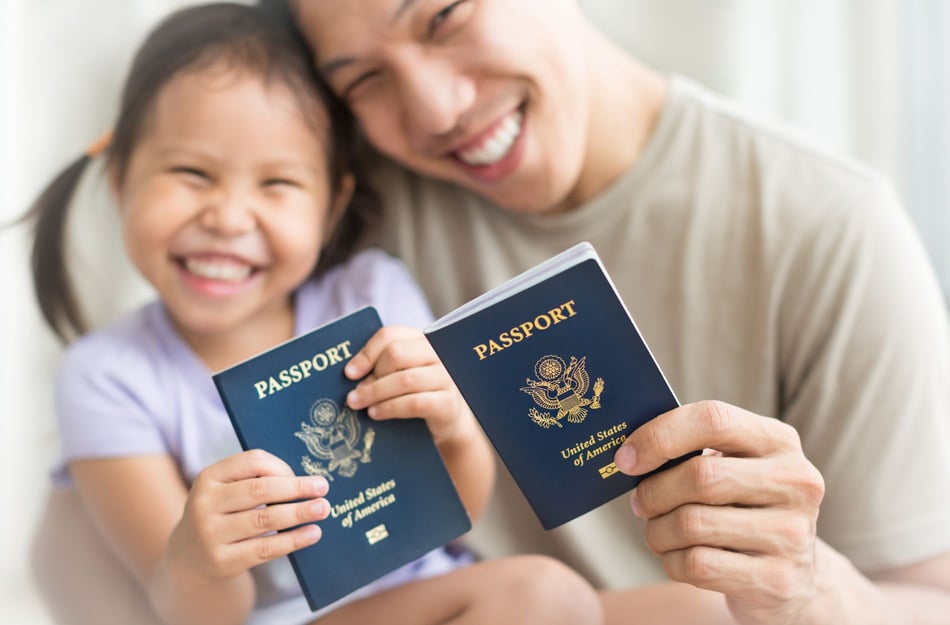
The United States is often referred to as a nation of immigrants, with millions of people tracing their heritage back to family members who courageously embarked upon journeys to create better lives for future generations. Family-based immigration remains a driving force behind the cultural fabric of our society in Denver, Seattle, and across the nation. Understanding the complex processes, challenges, and legal guidance necessary for successfully navigating the family-based immigration system is vital for reuniting families and building brighter futures in the U.S. At Novo Legal, we recognize the importance of being well-informed around various aspects of family-based immigration, providing educational content that demystifies the process and highlights the crucial role experienced immigration attorneys play in effectively assisting their clients.
This informative blog series will begin by offering a comprehensive overview of the different family-based immigration categories, including immediate relatives, family preference categories, and K-1 fiancé(e) visas. By explaining the nuances of these categories, we aim to help readers identify the most appropriate immigration path for their unique family situations.
Embark upon the journey to family reunification in the United States with this comprehensive guide, outlining the essentials of family-based immigration processes, challenges, and the essential support offered by dedicated immigration attorneys in Denver and Seattle.
Understanding Family-Based Immigration Categories
The U.S. immigration system offers several pathways to reunite families. Key categories include:
- Immediate Relatives: This category is reserved for the closest family members of U.S. citizens, such as spouses, unmarried children under 21, and parents. These petitions are not subject to caps, allowing for a potentially faster immigration process.
- Family Preference Categories: For more distant or specific family ties, the Family Preference Categories accommodate U.S. citizens' siblings, married children, and adult unmarried children, as well as lawful permanent residents' spouses, minor children, and unmarried adult children. These categories are subject to annual caps, often leading to longer waiting times.
- K-1 Fiancé(e) Visas: U.S. citizens who plan to marry a foreign national can opt for the K-1 visa route. This nonimmigrant visa allows the fiancé(e) to temporarily enter the U.S., marry within 90 days of arrival, and subsequently adjust their status to lawful permanent resident (Green Card holder).
Navigating the Petition and Visa Application Process
Successfully applying for family-based immigration involves several critical steps:
- Filing Form I-130: The U.S. citizen or lawful permanent resident (sponsor) must file Form I-130, Petition for Alien Relative, with U.S. Citizenship and Immigration Services (USCIS) to establish the familial relationship with the foreign relative (beneficiary) and initiate the immigration process.
- Visa Availability and Visa Bulletin: Due to annual caps on certain family-based categories, beneficiaries must often wait for a visa to become available. The Department of State's monthly Visa Bulletin provides updates on visa availability and priority dates for each preference category and applicants' countries of chargeability.
- Processing and Consular Interviews: Once a visa is available, the beneficiary can proceed with their consular processing at a U.S. embassy or consulate abroad, submitting the necessary documents, undergoing a medical examination, and attending an interview. The consular officer evaluates the application and decides whether to grant the immigrant visa.
Overcoming Challenges in Family-Based Immigration
Despite its merits, the family-based immigration process isn't without hurdles. Common challenges and potential solutions include:
- Petition and Application Delays: USCIS and consular processing times can be lengthy and unpredictable. Ensuring accurate and complete documentation, tracking processing times, and proactively addressing any requests for evidence or updates can help mitigate potential delays.
- Visa Retrogression: In some cases, visa availability may move backward or become temporarily unavailable. Monitoring the Visa Bulletin and adopting a patient, proactive approach can help mitigate the impact of visa retrogression on the overall immigration process.
- Affidavit of Support Requirements: The sponsor must demonstrate sufficient financial means to support the beneficiary through an Affidavit of Support (Form I-864). Inadequate income or assets could pose challenges. Consider exploring potential joint sponsors or using a combination of income and assets to meet the requirements.
The Role of Experienced Immigration Attorneys in Family-Based Immigration
Partnering with a seasoned immigration attorney can be a game-changer in family-based immigration:
- Identifying the Most Appropriate Immigration Path: Experienced attorneys can assess your unique situation and suggest the best immigration option, maximizing your chances of success.
- Ensuring Accurate and Complete Filings: Properly filing forms and compiling all necessary documentation is crucial to the immigration process. Attorneys can help ensure that you submit accurate and complete applications, reducing the risk of delays or complications.
- Advocating for Clients' Interests and Overcoming Obstacles: Skilled legal representation can provide vital support, addressing any questions, concerns, or complications that may arise during the immigration process and advocating for your interests throughout.
Conclusion
Family-based immigration in Denver and Seattle can be a complex, challenging endeavor. However, with a solid understanding of the immigration categories, processes, and potential challenges, and with the support of experienced immigration attorneys, families can successfully navigate this journey and ultimately be reunited in the U.S. With dedication, proactive planning, and comprehensive knowledge of your options, you can take a confident and informed approach to your family-based immigration process and achieve the dream of building a brighter future for you and your loved ones in the United States.
Let the knowledgeable and experienced immigration attorneys at Novo Legal guide you through the family-based immigration process in Denver and Seattle. Contact us today for an initial consultation and take the first step toward reuniting with your loved ones in the U.S.



